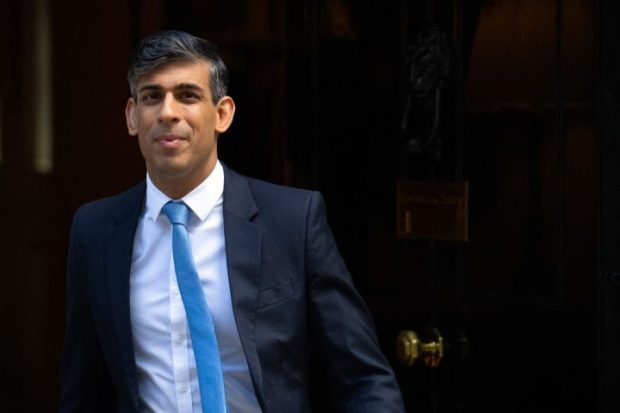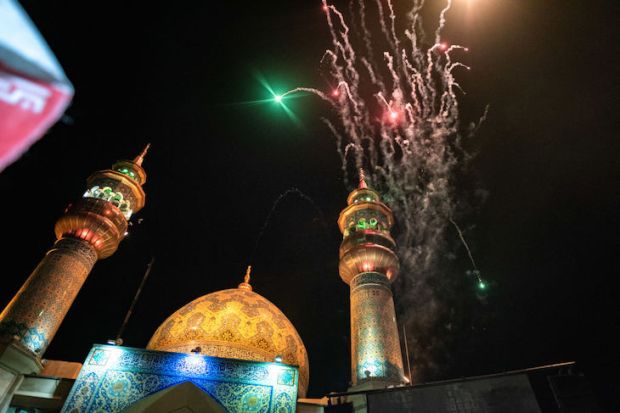Could it really be over? As Israeli political reporters stand before their cameras or hunch over their keyboards, their brains screaming with caffeine, that is the one question they’re asking. As are millions of voters, who remarkably turned out on Tuesday in impressive numbers, despite their election fatigue.
As I write this, there are still a quarter of the votes in Israel’s general election waiting to be counted. Many of the ballot boxes come from Bedouin communities in the Negev desert and other Arab communities. Who knows, perhaps they could still change the outcome?
Mathematically it’s certainly possible. Israel’s multi-party proportional-representation election system is a machine with a lot of small moving parts and any one of them can change the overall result. But it’s becoming less and less likely by the hour.
The bottom line is that unless there are enough remaining votes to push two or three small left-wing and Arab parties over the electoral threshold of 3.25 per cent, Binyamin ‘Bibi’ Netanyahu has succeeded, on his fifth try, to finally win a majority for his bloc of right-wing and religious parties.
That doesn’t mean that the four-year nightmare of political paralysis with five consecutive election campaigns is over. No one at this point is willing to bet that 2023 will be the first year since 2018 in which Israel didn’t hold a general election or two.
It remains a country deeply divided over one question: Bibi, yes or no? When the final results are in, it won’t be a surprise if the total number of those voting for anti-Netanyahu parties is actually higher than those who voted for the parties supporting him. If the center-left and Arabs hadn’t split into eight separate squabbling lists of candidates, then the outcome would probably have been yet another tie, leaving incumbent prime minister Yair Lapid in office, at least until election number six.
Netanyahu on the other hand kept his bloc tight, exerting maximum pressure on the various religious and far-right parties to merge their lists. The Netanyahu camp was a four-fingered fist that overcame their differences to coordinate campaigning and eke out every last stay at home voter. The election rallies were sparsely attended. I joined Netanyahu on the trail in one of the largest West Bank settlements, Maale Adumim, last Thursday. Only 300 people, half of them children, turned out to listen to him. They are as tired as the rest of Israeli voters. But when it mattered on Tuesday they came out and voted. In fact, the turnout of 71.3 per cent was the highest in this five-election cycle.
But Netanyahu’s majority, if indeed he has one, comes with a major headache. To ensure no votes were left beneath the threshold, he cajoled all the fringe players, including the extremist Jewish Power and homophobic Noam parties, into one joint list of candidates. It has turned out to be a brilliant tactic without which he probably would not have won. It also had an unintended consequence.
The leader of Jewish Power, Itamar Ben-Gvir, was for many years a political untouchable. As young extremist fire-brand he threatened the late prime minister Yitzhak Rabin, shortly before his assassination in 1995. He was an activist in a far-right party that was outlawed as a terror organisation. The last time Jewish Power ran on its own in an election in 2020, it won only 19,000 votes, failing miserably to cross the threshold. But once Netanyahu gave Ben-Gvir his stamp of approval, accepting him as a legitimate political partner, he unleashed a master-campaigner with a natural rapport, especially with working-class Jewish voters. On election day I followed Ben-Gvir through the towns of Israel’s southern coastal plain as crowds gathered around him demanding selfies and chanting his name.
Ben-Gvir has at least doubled the number of seats of the Religious Zionism list, of which he is one of the leaders, making it the third largest party in the Knesset. He managed to bring out Israelis who never voted in the past and Netanyahu owes him his majority. Now Ben-Gvir has demanded to be the public security minister, in charge of Israeli police.
Netanyahu has never taken kindly to rivals on the right and he’s aware of the consternation caused by Ben-Gvir’s rise in western governments he wants to remain on good terms with. But he needs Ben-Gvir for a majority. He would also like support for changes to the legal system, perhaps removing the attorney-general in the hope of ending his corruption trial which has been ongoing for two years now.
Netanyahu doesn’t have many options. He may try and entice some of his former opponents from the center-left into a more balanced coalition, but they are unlikely to want to help him out. The expectation now is that Netanyahu will go ahead and form a coalition with the far-right and religious parties, but once he has passed a few legal reforms, he is likely to find a reason to break up the partnership and go for yet another election. He will be back in office and has form as an interim prime minister. It won’t hold him back.
Netanyahu is 73. This was the eleventh time he led Likud in an election. Once again, he has come back from political death to bury his opponents and he has more elections in him. This isn’t over.
The post It looks like Bibi is back from the dead appeared first on The Spectator.
Got something to add? Join the discussion and comment below.
Get 10 issues for just $10
Subscribe to The Spectator Australia today for the next 10 magazine issues, plus full online access, for just $10.




















Comments
Don't miss out
Join the conversation with other Spectator Australia readers. Subscribe to leave a comment.
SUBSCRIBEAlready a subscriber? Log in